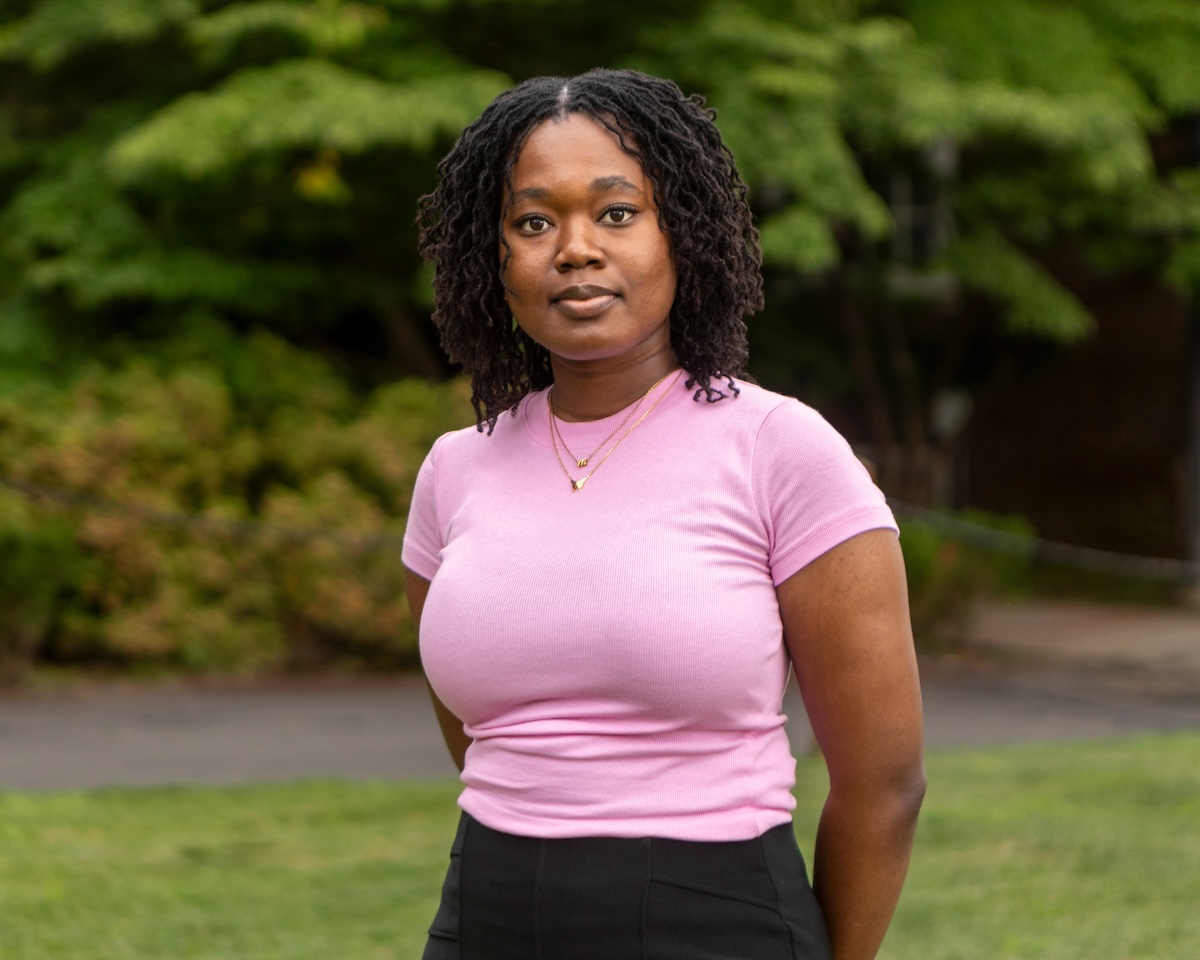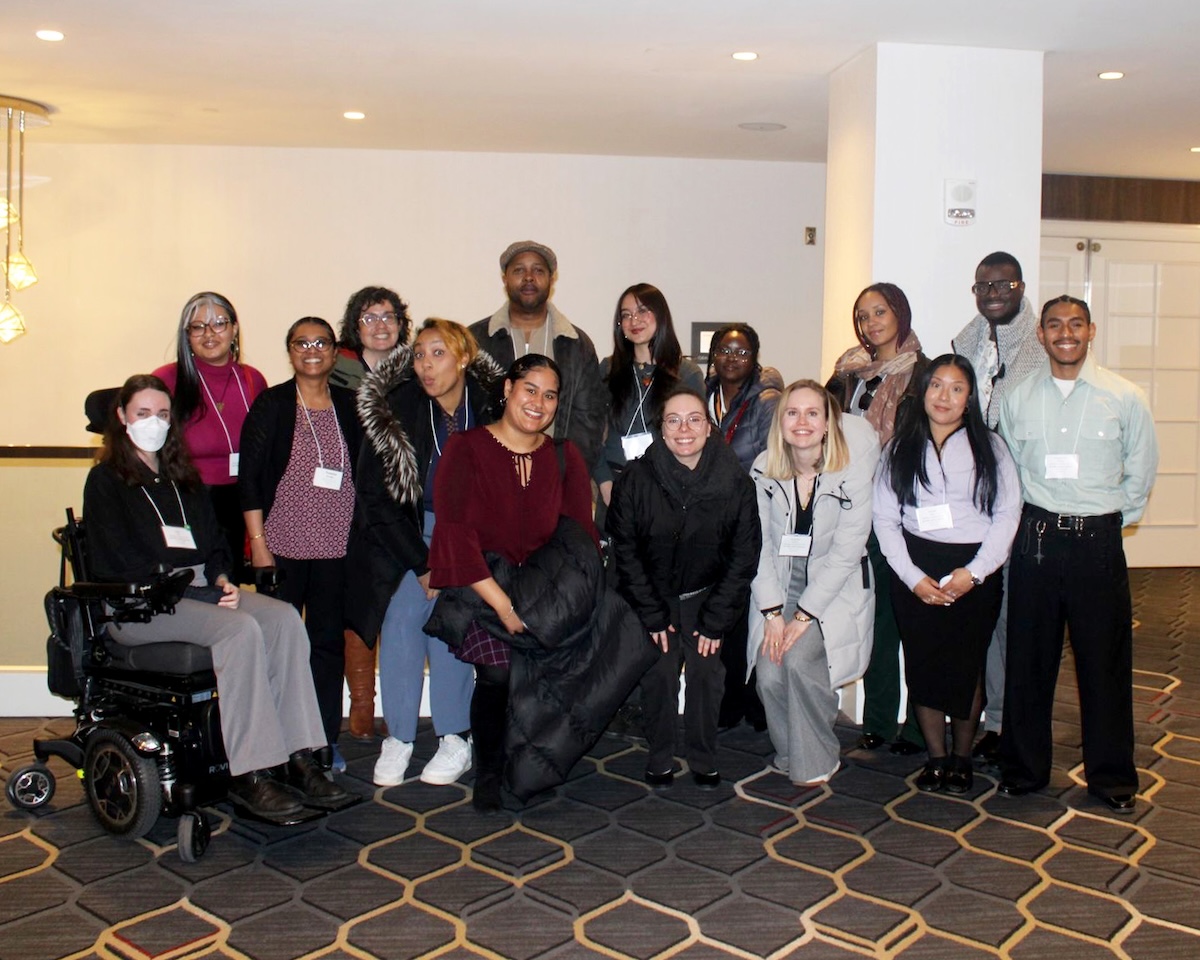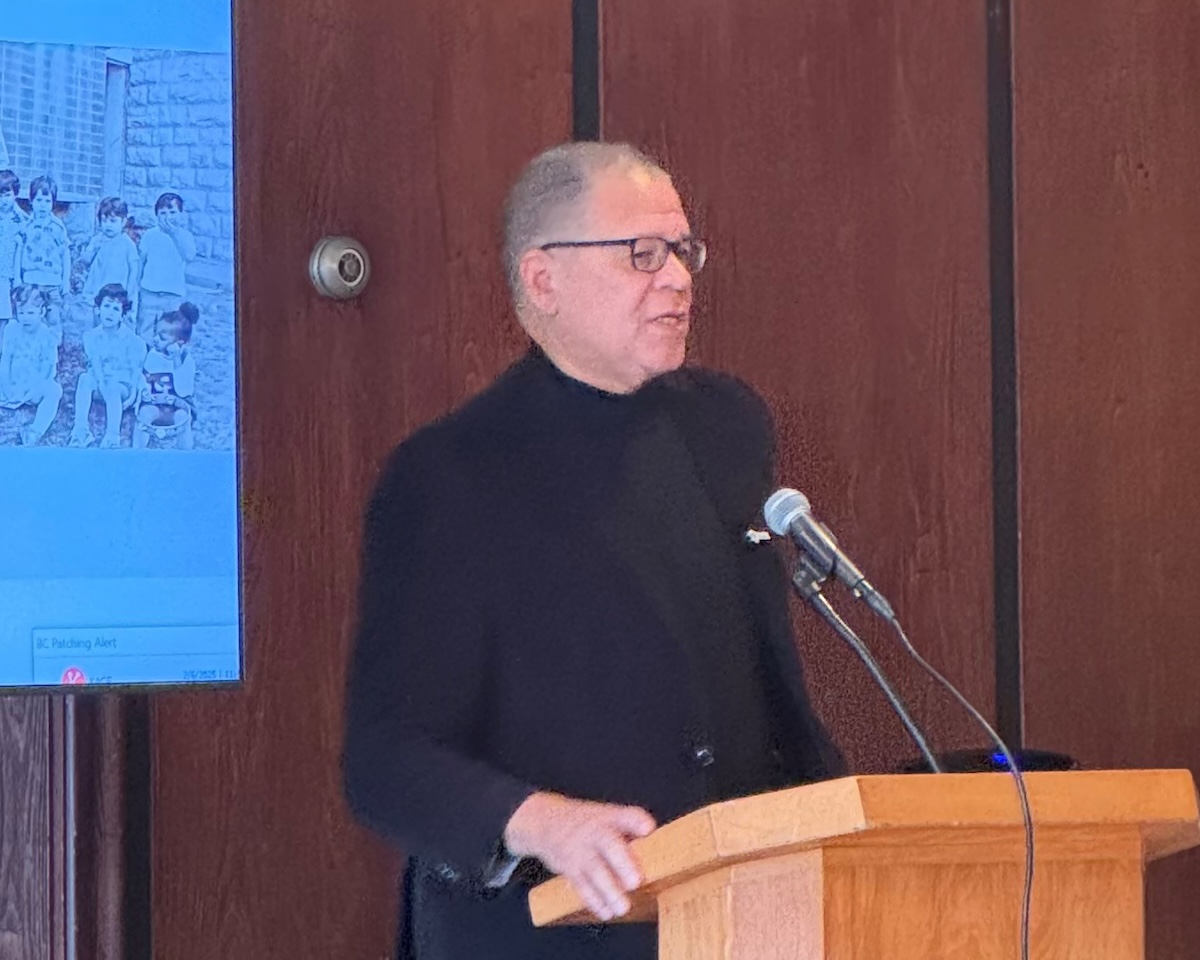Every day at lunchtime as a child, Marisha Sampson ran to her grandmother’s house, eagerly awaiting their daily talks. They’d sit on her back porch, eating homemade curry chicken or fresh fruit picked from the garden while admiring the Guyanese countryside.
Sampson listened to her stories about growing up in Guyana or folktales like Anansi, the wise trickster West African spider who represented resistance to slavery. These passed-down tales are why Sampson, a senior, is double majoring in Africana studies and Caribbean studies more than a decade after moving to the United States.
Recently, she participated in Ayiti in The City, a summer cultural exchange with the CUNY Haitian Studies Institute, where she soaked in the spirit of Brooklyn’s Little Haiti and other spots significant to the wider Black diaspora in Brooklyn, cooking Haitian stewed fish and mushroom rice and learning about the remedies in Haitian herbal teas.
We talked to Sampson about her academic and experiential learning experiences, her hobbies, and her future.
Tell us about your time in the Africana studies and Caribbean studies programs.
They both have interesting communities that are helpful and supportive. I’ve been able to dive into my culture and learn about other cultures. [Associate] Professor [Prudence] Cumberbatch, the Africana Studies Department chair, is amazing. I’ve been able to reach out to her any time I’ve needed help. And [Associate] Professor [Dale] Byam, the Caribbean studies program director, encouraged me to apply for Ayiti in the City. They’re all very passionate about what they teach, and I find that so inspiring.
Next semester, I’m presenting research from my independent study with [Assistant] Professor [Aleah] Ranjitsingh at the Tow Mentoring and Research Conference. My research is on a traditional Afro-Guyanese pre-wedding celebration, Kwe-Kwe, which occurs the night before the wedding. The groom brings his family to the bride’s family home, where they meet and make their interests known and then advise them on marriage, uniting two communities together. There’s food and music and dancing. It goes well into the night. It’s so interesting because they still have so much energy for the actual wedding day.
What inspired you to study African and Caribbean cultures?
Some of my fondest memories are of my grandmother sharing and passing on stories and folklore. Telling stories was something we did often in my family. I realized that most of these stories and cultural practices are passed down orally, and through participating in different cultural experiences. This sparked my interest in the way history can be woven into stories that can be used to spread information and impart knowledge, lessons, and memories to someone else.
I wanted to take classes that reminded me of home and my grandma. The stories I heard in class gave me the same feeling and a sense of “Oh, this is so beautifully put together. I would love to be a part of this.”
This summer you were part of the Ayiti in the City program.
It was enlightening how we could access our culture and traditions, especially being away from home. I ate great food and made new friendships. It helped us build self-identity and embrace our cultural heritage. It also reinforced my belief in how interconnected history is, and how important it is to know your past so you can make informed decisions about your future. I did a weekly vlog about my experience.
I interned at Little Haiti BK, where I supported local businesses and helped keep the neighborhood clean and safe. I’m grateful I got to learn more about Haiti; its history, culture, and people; Little Haiti; and the Haitian diaspora. I gained a new perspective on how resilient the Caribbean community is at home and abroad. I also learned about migration, and the resilience and resourcefulness of Haitian immigrants as they navigate living and building a community in a new space.
What’s something that people wouldn’t know about you off the bat?
I learned to play the steel pan in my Steel Pan and Community class with Professor [Kendall] Williams. I hadn’t played an instrument before. It’s played in the Caribbean, developed in the streets of Trinidad. I also like to read, dance, meditate, listen to music, and make beaded jewelry. Recently, I’ve been learning how to crochet.
You’re going into your last semester. How do you plan to make the most of it?
Next semester my friend and I are starting a club called The Fireflies that will focus on supporting women in media. In Caribbean culture, we don’t see much representation growing up. That’s why I want to see more women represented in the media, too, including behind-the-scenes, like the producers, screenwriters, and authors. We hope to create a safe space where individuals can come to support the creative aspirations of women and gender-identifying youth and contribute to the creative diversity of our campus community.
Where do you see yourself after you graduate?
I’m thinking about going to graduate school for history or public health with a specialization in African diasporic and Caribbean studies. I’m interested in possibly working in cultural organizations or libraries someday.



